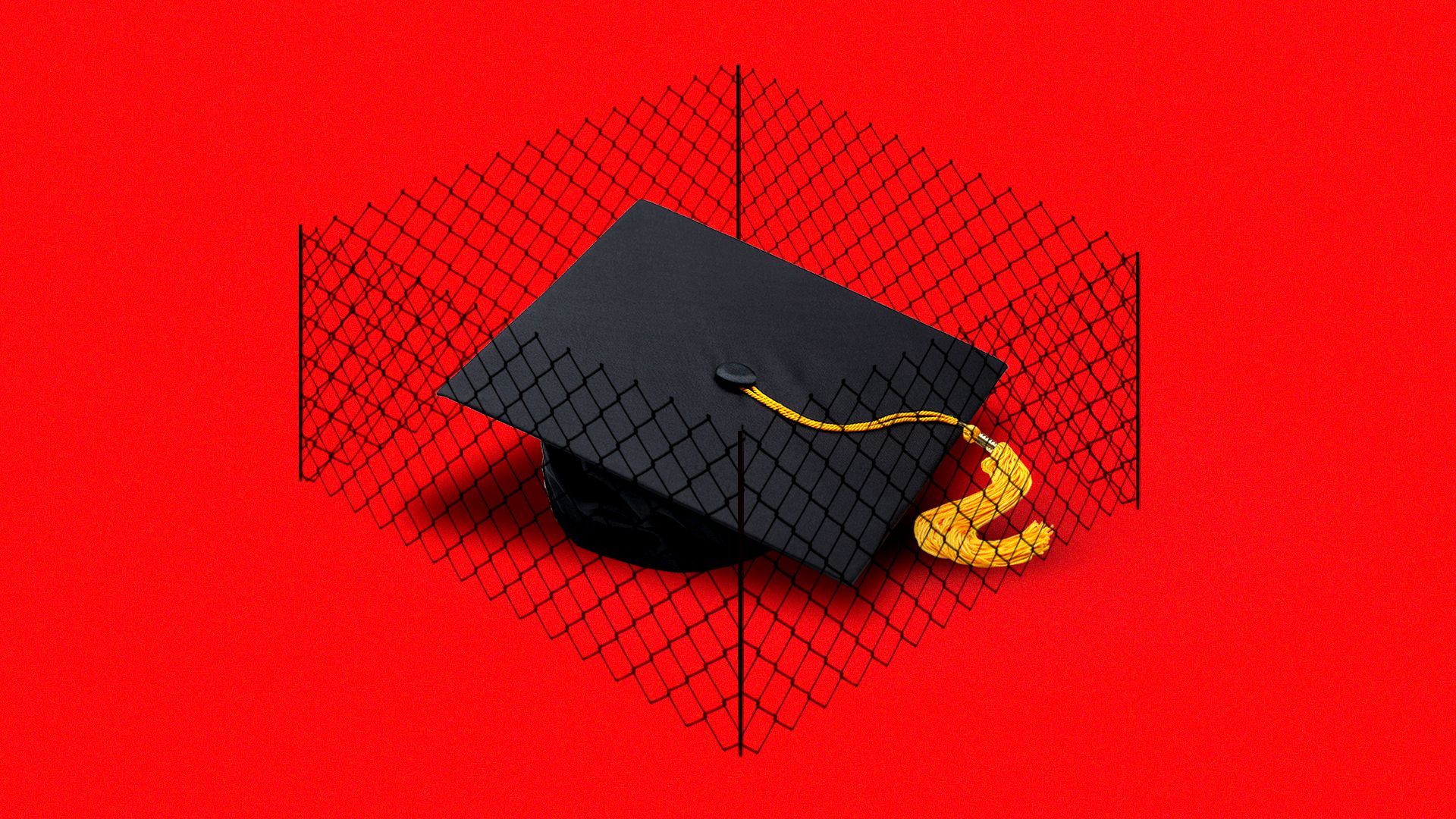Chinese students at U.S. colleges face deep uncertainty
Add Axios as your preferred source to
see more of our stories on Google.

Illustration: Annelise Capossela/Axios
A new visa guideline issued last week would strip international students in the U.S. of their student visa if their college classes are online-only amid the pandemic.
Why it matters: More than 360,000 Chinese students are enrolled at U.S. colleges. Many of them could be forced to return to China if the rule change is implemented.
Driving the news: The policy has attracted intense criticism, and 17 states and the District of Columbia sued the Trump administration over the measure.
Details: Students affected by the policy, unexpectedly announced by U.S. Immigration and Customs Enforcement last week, would have to transfer to a school offering in-person classes, or leave the U.S. in order to remain enrolled in their current school.
- U.S. officials provided no justification for the policy, which could upend the lives of many of the approximately one million international students currently studying at U.S. colleges. ICE declined to comment for this story.
Context: The announcement has been particularly difficult for many Chinese students, who have been caught in the middle as U.S.-China bilateral ties have rapidly deteriorated over the past year.
- "I was just a complete wreck" upon hearing the ICE announcement, said one Chinese graduate student currently in the U.S., who spoke to Axios on the condition of anonymity due to sensitivity over their visa status. "I didn’t even think it was physically possible for me to cry that much."
- "I’ve always had this fear that everything could fall apart," said the student, citing fears over U.S.-China bilateral relations. "And then in one day, it seemed like it did. My worst nightmare came true."
What's at stake: Many international students have dedicated years of their lives, and their families' savings, to a U.S. education, and the chance to get valuable work experience through the Optional Practical Training (OPT) program, which allows students to work in the U.S. for one year after graduation.
- But the OPT program requires at least two consecutive semesters of continuous visa status. If rising seniors lose their visa status and can only attend online classes for the fall semester from outside the U.S., they won't be eligible for OPT.
- Many students have leases in the U.S., as well as close personal relationships.
- Leaving the U.S. in the middle of a pandemic is neither safe nor affordable. The ticket price for many international flights, including to China, have skyrocketed.
The online-only model is hard enough for any student. But attending online classes in U.S. time zones while in China means students' daily schedules would be inverted.
- Iris Li, an undergraduate at Emory University in Atlantic, Georgia, returned home to Beijing during the spring semester after many U.S. colleges switched to an online model amid the pandemic.
- "By the end of my semester I was practically living on Atlanta time, writing all night, submitting at noon, sleeping in the afternoon, and going to classes in the evening," Li told Axios.
- Li said international students need emotional support now more than ever. "I know my school and professors won’t leave me alone. I know they will find ways to speak up for me," Li told Axios.
Go deeper: Here's how many student visas the U.S. issues each year
